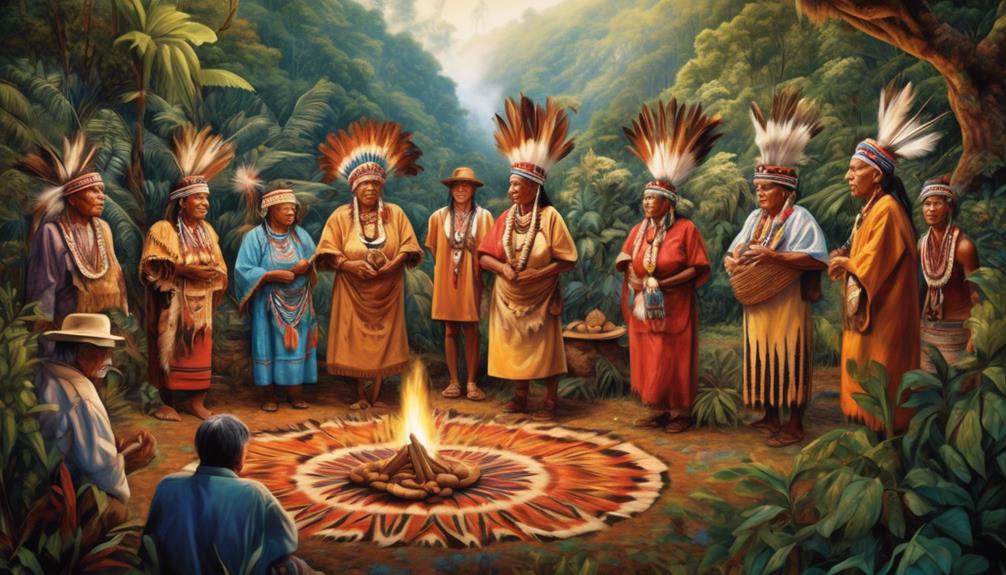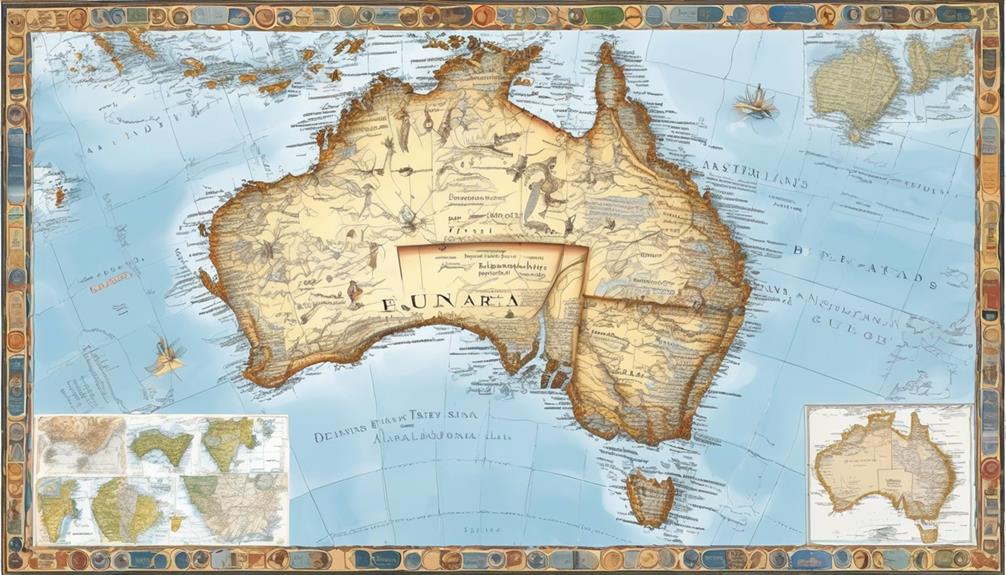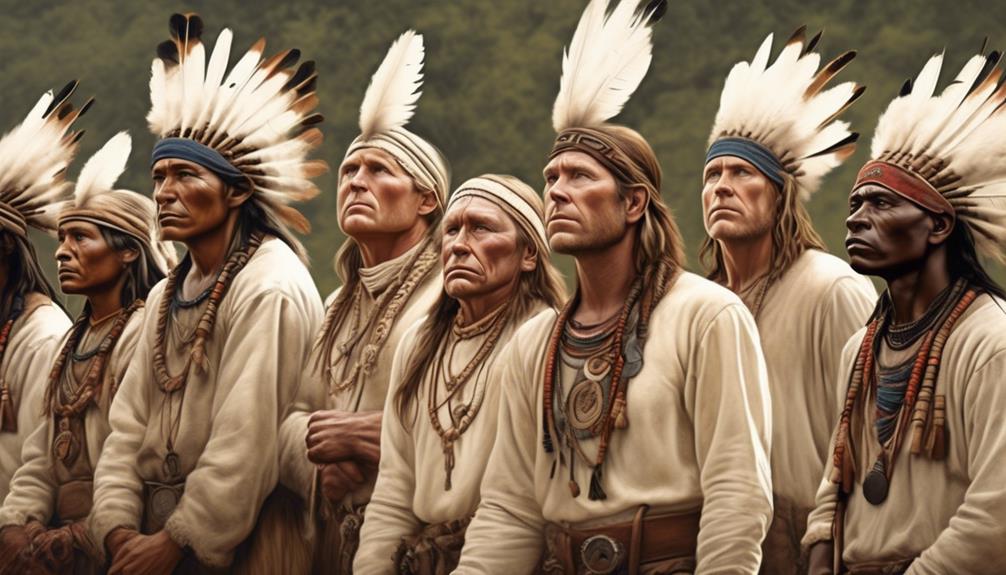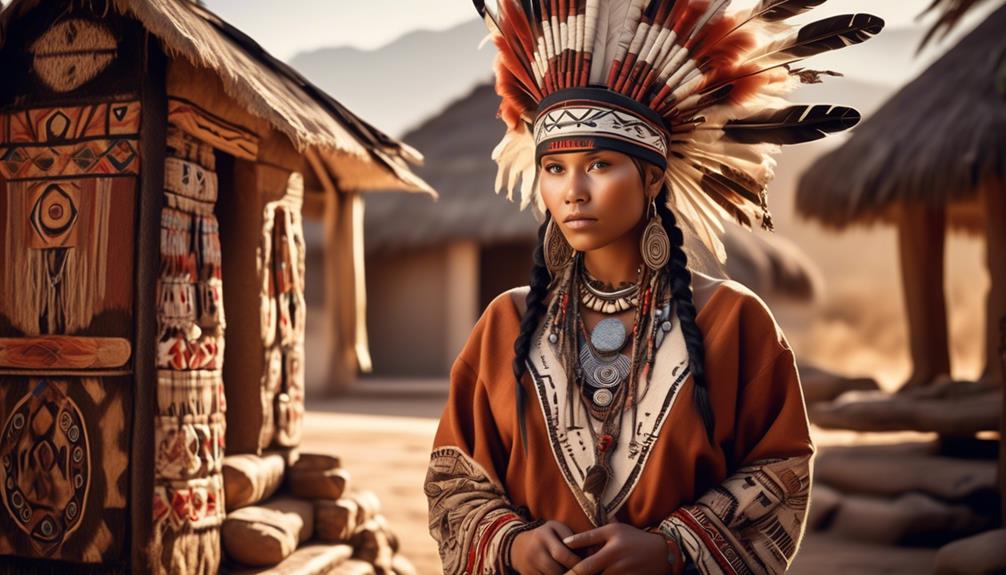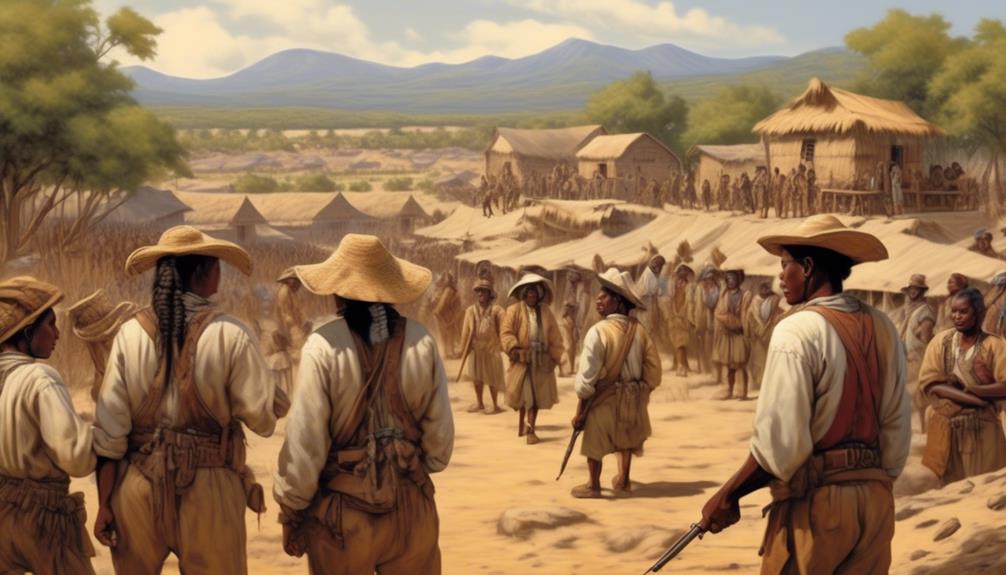Indigenous sovereignty is like a beautiful tapestry woven with threads of resilience, culture, and autonomy. Its significance extends far beyond just laws and politics, capturing the enduring spirit of indigenous peoples.
As we explore the multifaceted nature of indigenous sovereignty, it becomes evident that it encompasses not only territorial rights but also the preservation of cultural heritage and the quest for autonomy.
However, the complexities and nuances of indigenous sovereignty require us to navigate through historical struggles, legal complexities, and contemporary challenges.
Join us in unraveling the layers of indigenous sovereignty, understanding its impact, and exploring its relevance in the modern world.
Key Takeaways
- Colonization and oppression have had a significant impact on the autonomy and self-governance of Indigenous communities.
- Legal recognition of Indigenous communities is crucial for affirming their autonomy and self-governance.
- Asserting land rights is fundamental for upholding Indigenous sovereignty and preserving cultural identity.
- Indigenous communities face ongoing challenges such as legal battles over land rights and economic disparities, but continue to advocate for their rights and strive for cultural preservation.
Historical Context of Indigenous Sovereignty
As we delve into the historical context of Indigenous sovereignty, it becomes evident that centuries of colonization and oppression have significantly impacted the autonomy and self-governance of Indigenous communities. The colonial impact on Indigenous sovereignty has been profound, as European powers imposed their own systems of governance, often disregarding or actively suppressing Indigenous forms of self-rule. This has led to a long-standing struggle for Indigenous peoples to maintain their cultural resilience and traditional ways of governance in the face of external pressures.
Despite these challenges, Indigenous communities have demonstrated remarkable cultural resilience, preserving their languages, traditions, and customs throughout generations. The resilience of Indigenous cultures has been a crucial factor in their ongoing assertion of sovereignty and self-determination. It's important to recognize that the impacts of colonization aren't just historical, but continue to affect Indigenous communities today, shaping their ongoing struggles for autonomy and self-governance.
Understanding the historical context of Indigenous sovereignty necessitates acknowledging the enduring effects of colonialism and celebrating the strength and resilience of Indigenous cultures in the face of significant adversity.
Legal Frameworks and Recognition
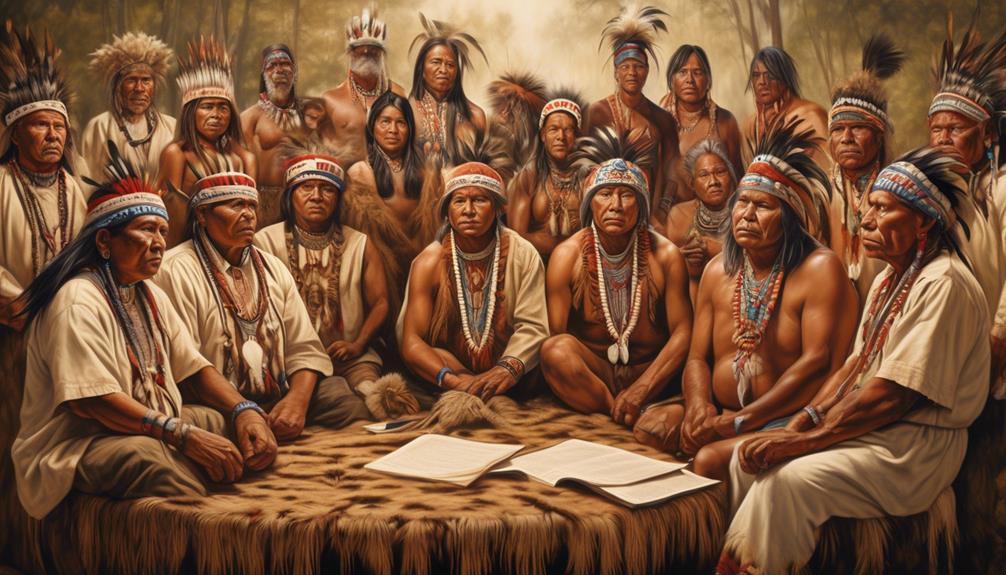
The impact of colonialism on Indigenous sovereignty has spurred the development of legal frameworks and recognition that are crucial for affirming the autonomy and self-governance of Indigenous communities. Legal recognition is fundamental in acknowledging the inherent rights of Indigenous peoples and their authority over their lands and resources. This recognition serves as a cornerstone for the protection and preservation of Indigenous cultures, traditions, and ways of life.
Importance of Legal Recognition
- Self-Determination: Legal recognition empowers Indigenous communities to govern themselves and make decisions that affect their people and territories.
- Land Rights: It provides a basis for asserting land rights and territorial integrity, safeguarding against encroachment and exploitation.
- Cultural Preservation: Recognizing Indigenous legal systems and customs helps safeguard their cultural heritage and traditional knowledge.
The implications of legal frameworks and recognition extend beyond national borders. International implications underscore the significance of respecting Indigenous sovereignty on a global scale, emphasizing the need for collaboration and adherence to international standards and conventions.
Indigenous Sovereignty and Land Rights
Asserting our inherent rights to our ancestral lands and resources is crucial for upholding Indigenous sovereignty and self-governance. Land ownership is fundamental to Indigenous communities' cultural identity, economic self-sufficiency, and overall well-being. Our traditional territories are more than just physical spaces; they're repositories of our history, spirituality, and traditional knowledge. The struggle for Indigenous land rights often intersects with the fight for environmental conservation and sustainable development. Recognizing and respecting our land rights isn't only a matter of justice but also essential for maintaining ecological balance and biodiversity.
The legal recognition of Indigenous land rights is a complex issue that varies widely across different jurisdictions. It often involves navigating historical injustices, conflicting property laws, and competing interests of governmental and corporate entities. Moreover, the concept of land ownership itself may differ significantly between Indigenous customary systems and Western legal frameworks.
As we assert our sovereignty over our traditional territories, it's imperative to establish mechanisms that allow for meaningful co-management and decision-making regarding land use and natural resources. This necessitates a shift towards collaborative governance models that honor Indigenous perspectives and ensure sustainable stewardship of the land.
Challenges and Contemporary Issues
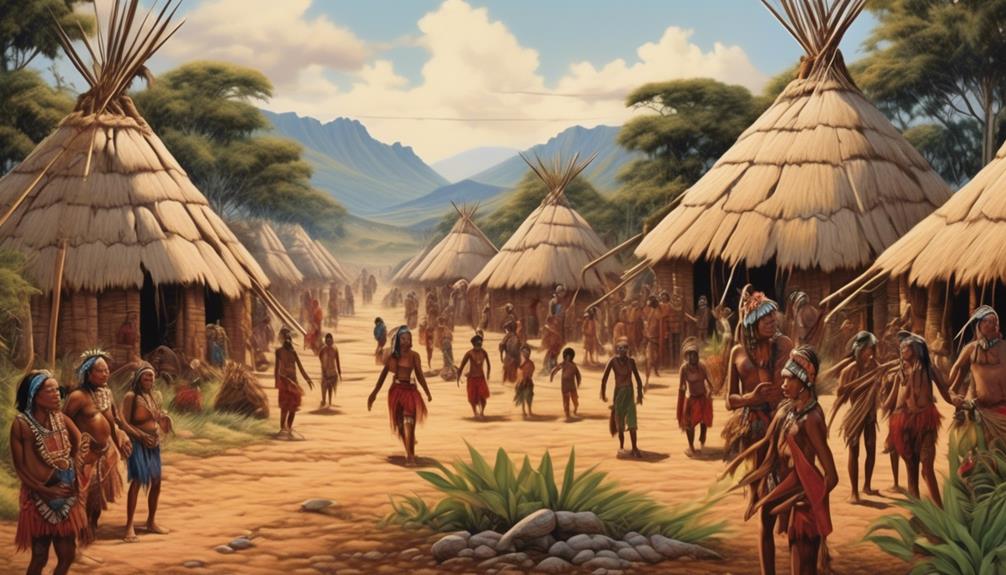
Navigating the complexities of modern legal systems while upholding our inherent rights to our ancestral lands presents significant challenges for Indigenous communities. The contemporary struggles we face encompass a range of issues that impact our cultural preservation and sovereignty. These challenges include:
- Land Disputes: Indigenous communities often face legal battles over land rights, as government entities and corporations seek to exploit natural resources on our ancestral lands without our consent. This poses a threat to our cultural heritage and traditional way of life.
- Political Representation: Despite efforts to advocate for our rights, Indigenous communities often struggle to gain meaningful representation in political decision-making processes. This lack of representation hinders our ability to protect our sovereignty and address the unique challenges we face.
- Economic Inequality: Many Indigenous communities grapple with economic disparities, which are exacerbated by historical injustices and discriminatory policies. This economic inequality undermines our ability to fully engage in cultural preservation efforts and maintain self-sufficiency.
In the face of these challenges, Indigenous communities continue to advocate for their rights, striving to overcome contemporary struggles and preserve their cultural heritage for future generations.
Importance of Indigenous Sovereignty Today
Amidst the complexities of modern legal systems, Indigenous sovereignty stands as a vital cornerstone for the preservation of our ancestral lands and cultural heritage. In today's world, the importance of Indigenous sovereignty cannot be overstated. It is the key to cultural preservation and self-determination for Indigenous communities around the globe.
| Importance of Indigenous Sovereignty Today |
|---|
| Cultural Preservation |
| Indigenous sovereignty is essential for the protection of our cultural practices, languages, and traditional knowledge. It allows us to maintain and pass on our unique ways of life to future generations. |
| Self-Determination |
| Sovereignty empowers Indigenous communities to govern themselves, make decisions about their own affairs, and shape their own futures. It enables us to uphold our traditions and adapt them to modern realities, ensuring our voices are heard in matters that affect us directly. |
Frequently Asked Questions
What Are Some Specific Examples of Indigenous Sovereignty Being Recognized and Respected in Modern Legal Frameworks?
Examples of indigenous sovereignty being recognized and respected in modern legal frameworks include:
- The legal recognition of land rights: This recognition acknowledges the inherent rights of indigenous communities to govern their own lands. It allows them to make decisions about resource management, land use, and development in ways that align with their cultural and traditional practices.
- Environmental protection: Indigenous sovereignty is also recognized in the legal frameworks that protect the environment. These frameworks acknowledge that indigenous communities have a deep connection to the land and possess valuable knowledge and traditional practices that can contribute to sustainable environmental management.
These legal frameworks demonstrate a growing understanding and respect for indigenous sovereignty within the broader legal system. They affirm the rights of indigenous communities to self-govern and make decisions that are in line with their cultural values and traditions. By recognizing and respecting indigenous sovereignty, these legal frameworks contribute to the preservation of indigenous cultures and the protection of the environment.
How Do Indigenous Communities Define and Exercise Their Sovereignty in Relation to Natural Resources and Environmental Protection?
In defining and exercising their sovereignty, indigenous communities display a deep commitment to environmental stewardship and resource management. By drawing upon traditional knowledge and practices, they assert their rights to protect and sustainably utilize natural resources.
This approach not only preserves the environment but also safeguards the cultural and spiritual significance of these resources. Indigenous sovereignty in this context reflects a holistic and interconnected approach to environmental preservation and community well-being.
What Are Some Common Challenges That Indigenous Communities Face in Asserting Their Sovereignty and Maintaining Their Land Rights?
In asserting our sovereignty and maintaining our land rights, indigenous communities commonly face challenges. These challenges include encroachment on our territories, lack of recognition of our traditional governance structures, and the threat of cultural assimilation.
These challenges hinder our ability to preserve our cultural heritage and protect our lands. Without recognition of our sovereignty, encroachment on our territories becomes more likely, leading to the loss of valuable resources and sacred sites. Additionally, the lack of recognition of our traditional governance structures undermines our ability to self-govern and make decisions that are in line with our cultural values and practices.
Furthermore, the threat of cultural assimilation poses a significant risk to our way of life. When our cultural practices and traditions are not respected or valued, they become at risk of being lost. This erosion of our cultural heritage not only affects our communities but also contributes to the loss of diversity and knowledge for society as a whole.
Therefore, it is crucial to address these issues to uphold our rights and ensure the continuation of our way of life. By recognizing and respecting our sovereignty, supporting our traditional governance structures, and promoting the preservation of our cultural heritage, we can work towards a more just and inclusive society for all.
How Do Indigenous Sovereignty and Self-Governance Intersect With Contemporary Issues Such as Economic Development and Healthcare Access?
Incorporating economic development, cultural preservation, healthcare access, and land rights, we see how indigenous sovereignty and self-governance intersect with contemporary issues.
Economic development may reflect the autonomy of indigenous communities, while healthcare access and cultural preservation are vital for their well-being.
Land rights are fundamental to their self-determination.
These intersections demonstrate the complex and interconnected nature of indigenous sovereignty and self-governance in addressing contemporary challenges.
In What Ways Does the Assertion of Indigenous Sovereignty Contribute to the Overall Diversity and Resilience of Global Governance Systems?
In the grand scheme of global governance, the assertion of indigenous sovereignty enriches diversity and resilience.
Legal recognition empowers indigenous communities to protect natural resources and advocate for environmental protection.
Their unique perspectives and traditional knowledge contribute to more holistic and sustainable approaches, enhancing the overall effectiveness of global governance systems.
Recognizing and honoring indigenous sovereignty fosters a more inclusive and robust framework for addressing complex global challenges.
Conclusion
In conclusion, indigenous sovereignty is a crucial and ongoing struggle for self-determination and the protection of land rights. It's a complex and multifaceted issue that requires recognition, respect, and support from governments and society.
Investigating the truth of the theory that indigenous sovereignty is essential for environmental conservation and sustainable development can provide a deeper understanding of its importance in today's world.
